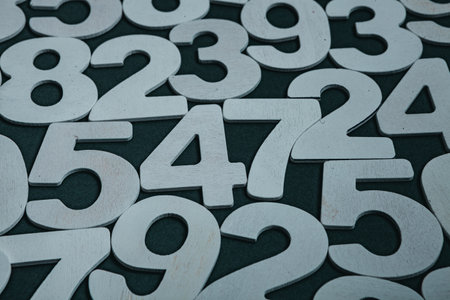Historical Context of Fortune-Telling in the UK
The story of fortune-telling in the United Kingdom is a complex interplay between spiritual belief, social perception, and legal intervention. Historically, practices such as palmistry, tarot reading, and mediumship have woven themselves into the fabric of British society, often reflecting broader cultural attitudes toward the mystical and the unknown. During the medieval and early modern periods, fortune-telling was frequently associated with witchcraft and heresy, leading to severe penalties under laws like the Witchcraft Act of 1542 and its later iterations. However, as Enlightenment rationality took root in the 18th century, public sentiment began to shift—superstitious practices were increasingly viewed with scepticism, though they retained a certain allure among segments of society. The 19th and early 20th centuries marked significant legislative milestones, most notably the Vagrancy Act 1824 and the Witchcraft Act 1735, which criminalised fraudulent fortune-telling but also signalled a move from spiritual condemnation to secular regulation. By the mid-20th century, with the introduction of the Fraudulent Mediums Act 1951, British law aimed to distinguish between honest spiritual practice and deception for personal gain. Throughout these periods, cultural attitudes oscillated between fascination and suspicion, shaping not only how fortune-telling was practised but also how it was policed. This historical backdrop sets the stage for understanding how modern British law continues to mediate the tension between spiritual tradition and secular authority.
2. The Legal Framework: Key Statutes and Acts
Fortune-telling in Britain is uniquely shaped by a series of statutes that reflect the country’s evolving relationship with spirituality, secularism, and consumer protection. The legal context is best understood through an exploration of key legislative acts, their historical roots, and their contemporary relevance.
Historic Overview of Legislation
The British state has long sought to regulate fortune-telling, oscillating between viewing it as a spiritual practice and as a potential avenue for fraud. Early laws, such as the Witchcraft Act 1735, criminalised certain supernatural claims outright. However, the post-war period saw significant changes with the introduction of the Fraudulent Mediums Act 1951. This act marked a notable shift, repealing the Witchcraft Act and focusing instead on protecting the public from deception rather than persecuting spiritual beliefs.
Key Statutes and Their Impact
| Statute/Act | Year Introduced | Main Provisions | Current Status |
|---|---|---|---|
| Witchcraft Act | 1735 | Criminalised claims of magical powers or witchcraft. | Repealed (1951) |
| Vagrancy Act (as applied to fortune-telling) | 1824 | Punished “wandering persons pretending to tell fortunes.” | Partially repealed; some provisions remain but are rarely enforced. |
| Fraudulent Mediums Act | 1951 | Prohibited fraudulent claims to communicate with spirits for gain. | Repealed (2008) |
| Consumer Protection from Unfair Trading Regulations | 2008 | Bans misleading commercial practices, including dishonest fortune-telling services. | In force |
The Shift to Consumer Protection Law
The repeal of the Fraudulent Mediums Act in 2008 signalled another legal turning point. Today, fortune-telling is primarily regulated under general consumer protection legislation—specifically, the Consumer Protection from Unfair Trading Regulations 2008 (CPRs). These regulations emphasise transparency and honesty in commercial transactions, regardless of any spiritual dimension. In practice, this means that while individuals are free to offer fortune-telling services, they must not make misleading claims or exploit vulnerable clients.
Cultural Implications of Legal Changes
This evolution in law demonstrates a nuanced approach: British statutes have moved away from targeting beliefs themselves towards regulating conduct that might harm consumers. Such changes reflect broader social attitudes in Britain—balancing respect for personal belief with robust protections against exploitation. Recent legal frameworks seek to mediate rather than suppress, reflecting both the country’s secular values and its pluralistic tolerance of diverse spiritual practices.

3. Secular Reasoning: Protecting the Public
Within the United Kingdom, fortune-telling is often viewed through a secular lens, especially in the context of legal oversight. British law interprets fortune-telling practices primarily as a matter of public interest, focusing on issues such as consumer protection, fraud prevention, and the maintenance of public order. This approach is less concerned with the spiritual claims made by practitioners and more attentive to the practical implications for the general public.
Consumer Protection and Misrepresentation
Legislation such as the Consumer Protection from Unfair Trading Regulations 2008 plays a crucial role in regulating how fortune-telling services are marketed and delivered. The law requires that consumers are not misled by false claims or deceptive advertising, regardless of whether these claims are spiritual or mundane in nature. Fortune-tellers operating as commercial enterprises must make it clear when their services are for entertainment purposes only, a stipulation that helps safeguard individuals from being exploited financially or emotionally.
Fraud and Legal Accountability
Fraudulent behaviour within the fortune-telling industry is addressed under laws like the Fraud Act 2006. Here, the focus is on intent: if a practitioner knowingly deceives clients for personal gain, they may be prosecuted for fraud. This legal position does not judge the veracity of supernatural claims but rather centres on the intent to deceive and the resulting harm to clients. As such, fortune-telling services must operate transparently to avoid falling foul of these regulations.
Maintaining Public Order
The British legal system also considers public order when mediating fortune-telling practices. Historically, legislation such as the Vagrancy Act 1824 targeted rogues and vagabonds, including some fortune-tellers, but modern enforcement is more nuanced. Authorities intervene if fortune-telling activities threaten community safety or incite disorder. However, in practice, most contemporary legal actions focus on business practices and consumer rights rather than moral or spiritual condemnation.
In summary, British law manages secular concerns around fortune-telling by prioritising consumer protection, targeting fraudulent activity, and ensuring that public order is upheld. This framework allows for individual belief while providing clear boundaries for acceptable commercial conduct, reflecting a pragmatic approach rooted in public welfare rather than spiritual adjudication.
4. Spirituality, Religion, and Freedom of Belief
In the United Kingdom, the distinction between spiritual practice and commercial enterprise is often subtle, especially when it comes to fortune-telling. On one hand, fortune-telling can be deeply rooted in personal spirituality or cultural traditions; on the other, it is frequently offered as a paid service. This duality presents a unique challenge for British law, which must uphold both religious freedom and consumer protection.
The UK’s legal landscape is shaped by a strong commitment to freedom of belief, enshrined in the Human Rights Act 1998 and reinforced by anti-discrimination legislation. These laws ensure that individuals are free to practise their chosen beliefs, whether through established religions or more esoteric spiritual practices like tarot reading or clairvoyance. However, this freedom is not absolute: it must be balanced against protections for consumers and the prevention of fraudulent activities.
The Fine Line: Spiritual Practice vs. Commercial Service
| Aspect | Spiritual Practice | Commercial Service |
|---|---|---|
| Intent | Personal growth, guidance, cultural tradition | Profit-driven transaction, advertised service |
| Setting | Private gatherings, community rituals | Public shops, online platforms, events |
| Legal Framing | Protected under freedom of belief | Subject to consumer protection laws (e.g. Consumer Protection from Unfair Trading Regulations 2008) |
| Regulatory Focus | Non-interference unless public order or harm is at stake | Scrutiny over advertising claims and business practices |
This nuanced approach means that British authorities typically avoid interfering with fortune-telling when it occurs as part of sincerely held beliefs or cultural heritage. Problems arise primarily when fortune-telling crosses into the realm of commerce, particularly if there is potential for exploitation or misleading claims. Here, regulators such as Trading Standards may intervene—not to suppress spiritual expression, but to ensure transparency and protect vulnerable individuals from harm.
Ultimately, UK law strives to respect the spiritual dimension of fortune-telling while upholding secular principles in the marketplace. By distinguishing between genuine belief and commercial exploitation, British legislation aims to foster an inclusive society where diverse forms of spirituality can coexist alongside robust consumer safeguards.
5. Contemporary Issues: Online Platforms and Cultural Shifts
The rise of digitalisation and new media has fundamentally altered the landscape of fortune-telling in the UK, presenting both challenges and opportunities for legal regulation. Traditionally, British laws sought to mediate fortune-telling practices through frameworks such as the Fraudulent Mediums Act 1951, aiming to protect the public from deception while respecting spiritual traditions. However, the migration of these practices to online platforms complicates regulatory efforts, as the internet transcends national boundaries and offers anonymity to practitioners.
Social media, live-streaming services, and dedicated fortune-telling apps have enabled practitioners to reach wider audiences than ever before. This shift has not only increased access but also introduced new risks associated with online scams and unverified claims. British regulators now face the challenge of applying existing consumer protection laws in a digital context, where enforcement is more complex and accountability can be elusive.
Cultural attitudes towards fortune-telling have also shifted. There is a growing acceptance of alternative spiritualities, especially among younger generations who may view tarot readings or astrology as forms of entertainment or self-reflection rather than strictly spiritual or fraudulent activities. This blurring of boundaries between spirituality, commerce, and leisure further complicates how laws are interpreted and enforced. The secular framework of British law must continually adapt to these changing perceptions to avoid stifling legitimate cultural expression while still protecting vulnerable individuals.
Another significant issue is cross-jurisdictional enforcement. Many online fortune-tellers operate from outside the UK, making it difficult for British authorities to hold them accountable under local regulations. This has led to calls for greater international cooperation and updated legal instruments that reflect the realities of a globalised digital economy.
In summary, digitalisation and evolving public attitudes require an ongoing re-evaluation of how British laws mediate fortune-telling practices. Policymakers must strike a delicate balance: safeguarding consumers without infringing on personal beliefs or cultural trends that increasingly define modern British identity.
6. Case Studies and Public Perception
Examining recent British cases and controversies involving fortune-telling practices offers valuable insight into how the country’s legal framework is applied in real situations. One notable example is the 2008 prosecution of a spiritualist medium under the Consumer Protection from Unfair Trading Regulations. The individual was accused of making misleading claims during a public demonstration, leading to a heated debate about the boundaries between spiritual belief and deceptive commercial practice. Ultimately, the case highlighted the delicate task faced by courts: distinguishing between personal faith-based expressions and practices that may exploit vulnerable individuals.
The British press has played an active role in shaping public perception of fortune-telling. Media coverage often oscillates between scepticism—emphasising fraud and consumer harm—and a certain cultural fascination with spiritual traditions. Tabloid stories about psychic scams or high-profile police investigations into fraudulent mediums tend to reinforce the secular, rationalist stance of British law. At the same time, human-interest features in broadsheets occasionally adopt a more sympathetic tone, exploring how individuals find comfort and meaning in spiritualist communities.
Public reaction is similarly divided. On one hand, there is a persistent undercurrent of suspicion, rooted in the British tradition of pragmatism and empiricism. Many Britons view fortune-telling as harmless entertainment or superstition at best, and as predatory or exploitative at worst. On the other hand, there is a vocal minority who advocate for religious freedom and defend the right of individuals to seek guidance from mediums or psychics as part of their spiritual lives.
Recent controversies have also prompted official responses from regulatory bodies such as Trading Standards and the Advertising Standards Authority (ASA). These organisations have issued guidelines on advertising claims related to psychic services, underscoring the expectation that all commercial activities—spiritual or otherwise—must comply with consumer protection laws. Notably, ASA interventions often centre on the requirement for clear disclaimers, reminding practitioners and clients alike that fortune-telling is “for entertainment purposes only.”
In summary, the British legal system’s mediation between spiritual and secular interests is vividly illustrated by these case studies. The interplay between courts, media, and public opinion reflects ongoing negotiations over belief, commerce, and protection from harm—a uniquely British balancing act shaped by history, culture, and evolving legal standards.

